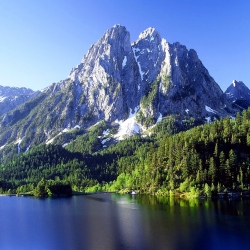
At the same time, some worst-case fears about climate change that have entered the popular imagination can be ruled out as unlikely, at least over the next century, the panel found. These include a sudden belch of methane from the ocean or the Arctic that would fry the planet, as well as a shutdown of the heat circulation in the Atlantic Ocean that would chill nearby land areas — the fear on which the 2004 movie “The Day After Tomorrow” was loosely based.
In a report released Tuesday, the panel appointed by the National Research Council called for the creation of an early warning system to alert society well in advance to changes capable of producing chaos. Nasty climate surprises have occurred already, and more seem inevitable, perhaps within decades, panel members warned. But, they said, little has been done to prepare.
“The reality is that the climate is changing,” said James W. C. White, a paleoclimatologist at the University of Colorado Boulder who headed the committee on abrupt impacts of climate change. “It’s going to continue to happen, and it’s going to be part of everyday life for centuries to come — perhaps longer than that.”
While most climate scientists believe the human release of greenhouse gases has made immense changes in the earth inevitable, they hope many of these will happen slowly enough that society can adapt.
The document the panel released Tuesday is the latest in a string of reports to consider whether some changes could occur so suddenly as to produce profound social or environmental stress, even collapse. Like previous reports, the new one considers many potential possibilities and dismisses most of them as unlikely — at least in the near term.
